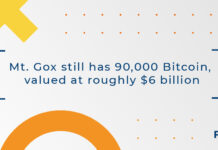A controversial proposed rule that would enforce “know-your-customer” rules on unhosted or self-hosted crypto wallets may be under renewed consideration by the U.S. government.
The rule was first proposed in late 2020 by the Financial Crimes Enforcement Network (FinCEN), the U.S. money-laundering regulator. If enacted, crypto exchanges would be required to collect names and home addresses, among other personal information, of anyone seeking to transfer cryptocurrencies into their own private wallets.
Industry advocates expressed concern that it would be impossible for certain wallets to comply with the regulations because they are not controlled by humans and therefore are not bound by this personal data. Others were also concerned that the requirement could be overly burdensome for individuals.
The rule was pushed by then-Treasury Secretary Steven Mnuchin, not FinCEN itself. The original proposal was posted on Treasury’s website, not FinCEN’s. The regulator did not publish the proposed rule until the comment period was extended.
The Treasury Department, now led by Treasury Secretary Janet Yellen, indicated that the rule may be included in the semiannual regulatory agenda, which will be officially published in the Federal Register on Jan. 31. The agenda outlines Treasury’s priorities, but it does not say that the rules will definitely be implemented or that they will be implemented as is. Rather, the agenda is a tool that indicates what Treasury will work on over the next six months.
“FinCEN proposes to amend regulations implementing the Bank Secrecy Act (BSA) to require banks and money services businesses (MSBs) to file reports, maintain records, and verify the identity of customers with respect to transactions involving convertible virtual currency (CVC) or legal tender digital assets (‘LTDA’ or ‘legal tender digital assets’) held in non-hosted wallets or in wallets hosted in a jurisdiction identified by FinCEN,” according to the document.
A timeline in the section indicates that FinCEN plans to finalize the rule by the end of August if it chooses to do so.
Split rule
The proposed rule originally had an unusually short comment period of 15 days, which further fueled controversy among industry advocates. Typically, comment periods range from 30 to 90 days, although some regulations can have 120-day comment periods.
In public notices, FinCEN extended the comment period twice, first for an additional 15 days and later for an additional 60 days.
In the first extension, FinCEN treated the provisions of the rule as two separate issues. One of those provisions sought to establish rules for reporting currency transactions (CTR) for crypto transactions to non-hosted wallets. Financial institutions currently file CTRs for customers who trade more than $10,000 in a single day.
The personal data collection rule, also known as the Counterparty Data Collection Rule, would apply to customers who transfer more than $3,000 in cryptocurrencies to private wallets per day.
This second rule has led to an industry backlash, with several thousand comments submitted. FinCEN may need to establish a new comment period to address these responses before implementing the rule to collect counterparty data.
A FinCEN spokesperson did not immediately respond to a request for comment on whether the agency is considering the entire rule or the individual provisions. However, a link on the Federal Register page leads to the original proposed rule, dated Dec. 23, 2020.
Defining ‘money’
The Federal Reserve and FinCEN also plan to “clarify the meaning of ‘money'” under the Bank Secrecy Act (BSA) with respect to digital assets to ensure that transactions involving digital assets are subject to the same BSA rules as their paper counterparts.
“The agencies intend the revised proposal to ensure that the rules apply to domestic and cross-border transactions involving convertible virtual currency. This is a medium of exchange (such as cryptocurrency) that either has equivalent value to a currency or acts as a substitute for a currency, but does not have legal tender status,” the document states.
In addition, the BSA rules also apply to all transactions involving digital assets that “have legal tender status,” according to the document.
Source: CoinDesk




